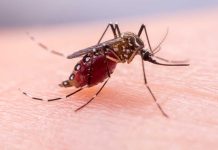
Dementia: The Silent Epidemic We Can Actually Fight
Attention, fellow patriots! While we’re busy defending our freedoms and values, there’s another enemy creeping up on us – dementia. But here’s some good news for a change: we might just have the power to fight back against this memory-stealing menace. Forget about the doom and gloom of mainstream media; let’s talk about how we can take control of our cognitive destiny. Buckle up, because we’re about to dive into some brain-saving strategies that even the most hardened conservative can appreciate.
The Dementia Dilemma
Global dementia cases are expected to skyrocket from 55-57 million to a whopping 153 million by 2050. That’s not just a problem for individuals and families; it’s a potential economic disaster waiting to happen. But before you start hoarding crossword puzzles, there’s hope on the horizon.
“The progress in preventing and treating dementia is accelerating.” – Dr. Gill Livingston
A groundbreaking report from the Lancet Commission has identified 14 modifiable risk factors that, if addressed, could prevent or delay nearly half of all dementia cases worldwide. That’s right, folks – we’re not talking about some pie-in-the-sky liberal fantasy, but concrete steps backed by cold, hard science.
The Dirty Dozen (Plus Two)
So, what are these magic 14 factors? Brace yourselves, because some of them might sound familiar:
1. Less education
2. Head injury
3. Physical inactivity
4. Smoking
5. Excessive alcohol consumption
6. Hypertension
7. Obesity
8. Diabetes
9. Hearing loss
10. Depression
11. Air pollution
12. Social isolation
13. High cholesterol
14. Vision loss
Notice how some of these factors are things we can control individually, while others require broader societal changes? That’s no coincidence, and it’s a reminder that personal responsibility and community action go hand in hand.
Taking Action: Personal and Public
The report doesn’t just list problems; it offers solutions. There are 13 specific recommendations for individuals and governments to prevent dementia. And before you start worrying about the cost, implementing these recommendations could lead to significant savings and improved quality of life for millions.
“Even in cases of dementia that these steps don’t prevent, quality of life is better for people who have had these risks addressed. We can protect and help the brain and should!” – Dr. Glen R. Finney
It’s important to note that while age and genetics remain the largest risk factors, managing these other health and lifestyle factors offers significant prevention opportunities. In other words, we’re not powerless against dementia.
The Big Picture
While individual actions are crucial, the report also emphasizes the need for societal-level changes to address risk factors beyond our control. Things like air pollution and early childhood education require structural changes to give everyone a fair shot at a healthy brain.
“But others, like air pollution and early childhood education, are bigger than individuals and communities. Tackling them will need structural changes to society to give everyone the best chance of a healthy life, free from the impact of dementia. Public health leaders must not ignore this message.” – Dr. Susan Kohlhaas
This isn’t about big government overreach; it’s about creating an environment where personal responsibility can truly thrive.
Conclusion: A Call to Action
The battle against dementia isn’t just a medical issue; it’s a challenge to our values of self-reliance, community strength, and national prosperity. By taking these findings seriously and implementing changes at both personal and societal levels, we can protect our minds, our families, and our future. It’s time to add “cognitive warrior” to our list of patriotic duties. Are you ready to join the fight?
Sources
Childhood Dementia Risk Factors
Almost half of dementia cases could be prevented or delayed
Eliminating 14 dementia risk factors
Factors that delay dementia onset













